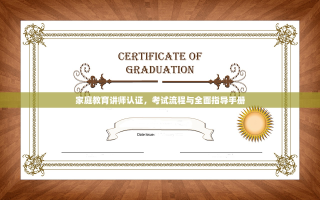Family education plays a crucial role in shaping future generations. It is the foundation for children's development, instilling values, morals, and life skills. Through family education, parents can guide their children to become responsible, empathetic, and well-rounded individuals. This nurturing environment fosters a strong sense of identity and belonging, which is essential for personal growth and societal contribution. By prioritizing family education, we can ensure a brighter future for our children and the generations to come.
In the tapestry of human development, family education stands as a fundamental thread that weaves the fabric of society. It is the cornerstone upon which the character and values of future generations are built. As the first school for children, the family plays a crucial role in shaping their attitudes, behaviors, and overall development. This essay delves into the importance of family education, its impact on children's growth, and the strategies that can be employed to foster a nurturing environment.
The family unit is where children first learn about the world around them. It is a microcosm of society, providing a safe space for children to explore, make mistakes, and learn from their experiences. The lessons imparted within the family are not just academic; they encompass emotional intelligence, social skills, and moral values. These early lessons lay the foundation for a child's understanding of right and wrong, empathy, and respect for others.
One of the key aspects of family education is the cultivation of self-esteem and confidence. Parents who encourage their children to express themselves, take risks, and learn from their failures are nurturing individuals who are more likely to face challenges head-on. Conversely, a lack of support and understanding can lead to feelings of inadequacy and low self-worth, which can hinder a child's personal and professional growth.
Communication is another vital component of family education. Open and honest dialogue between parents and children fosters trust and understanding. It allows children to voice their opinions, concerns, and aspirations, which in turn helps parents guide them more effectively. This two-way communication also teaches children the importance of listening and responding respectfully, skills that are essential in all aspects of life.

Discipline is a contentious issue in family education, but it is an essential tool for teaching children about consequences and responsibility. Discipline should be fair, consistent, and age-appropriate, focusing on teaching values rather than merely enforcing obedience. Through discipline, children learn to respect rules, understand the impact of their actions, and develop self-control.
Cultural and moral education is also a significant part of family education. Families pass down traditions, beliefs, and values from one generation to the next, shaping a child's identity and sense of belonging. This cultural heritage can provide a strong foundation for personal development and a sense of continuity amidst a rapidly changing world.
The role of family education extends beyond the home. Parents are encouraged to be involved in their children's education by participating in school activities, monitoring their progress, and advocating for their needs. This involvement not only strengthens the bond between parents and children but also communicates to children the importance of education and the value placed on their achievements.
In today's digital age, family education also includes teaching children about the responsible use of technology. With the internet and social media playing a significant role in children's lives, parents must guide their children on how to navigate these platforms safely and respectfully. This involves discussions about online etiquette, privacy, and the potential dangers of sharing personal information.
However, family education is not without its challenges. Parents themselves may struggle with balancing work and family life, leading to less time spent with their children. Economic pressures can also impact a family's ability to provide a stable and nurturing environment. Additionally, the diversity of family structures and cultural backgrounds means that there is no one-size-fits-all approach to family education.
To overcome these challenges, it is essential for families to seek support when needed. This can come in the form of parenting classes, counseling services, or community resources. By accessing these resources, parents can gain the tools and knowledge to better navigate the complexities of family education.
In conclusion, family education is a multifaceted and dynamic process that shapes the minds and hearts of children. It is a responsibility that parents undertake with love and dedication, and its impact is felt not only in the lives of their children but also in the broader society. As we continue to evolve as a global community, the importance of strong family education will only grow, emphasizing the need for continued support, research, and innovation in this critical area.








还木有评论哦,快来抢沙发吧~